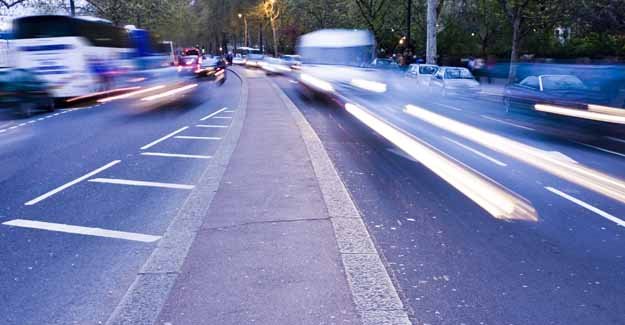Keeping Britain moving - re-opening roads after accidents
A full-scale review of the amount of time roads are closed after serious accidents is urgently needed.
Delay in reopening roads costs the economy billions of pounds each year, and the congestion it causes can also lead to further accidents.
The RAC Foundation believes it is vital police properly investigate crashes where people are killed or seriously injured, but this need has to be set against the requirement to keep traffic moving. Improvements in the way accidents are investigated could benefit both road users and victims’ families.
It is estimated road closures caused by accidents account for a quarter of all congestion and cost the country more than £5 billion a year.
In the last quarter of 2008 there were 86 closures of English motorways lasting more than three hours, yet for the whole year – across Great Britain – there were only 136 fatal motorway accidents.
Roads are often still closed long after an accident has taken place because of police investigations, but very little data is collected to show how many of these investigations translate into successful prosecutions.
In his report Delays Due to Serious Road Accidents, published today by the RAC Foundation, Irving Yass makes a number of observations:
• The 2007 Police Road Deaths Investigation Manual is based on the principle that all fatal collisions should be investigated as ‘unlawful killings’ until the contrary is proved.
• There are currently no national statistics on how many detailed accident investigations take place, nor how many prosecutions result from them.
• There does not appear to be a standard practice in deciding when to deploy specialist investigation teams to non-fatal accidents.
• A snapshot of four police forces – London, Essex Humberside and Surrey – indicates the number of investigations is around three times the number of actual fatalities.
Amongst the report’s recommendations are:
• Police authorities should maintain 24-hour cover by specialist accident investigation teams.
• Accidents should be investigated by the nearest team even if it is from a neighbouring force.
• Thought should be given to removing the investigation role from individual constabularies and creating a national unit.
• The role of investigating an accident site and also managing it, is too much for one team and the responsibilities should be split.
• Recovery vehicles should be called in ASAP so they are on site when needed.
• The Highways Agency should establish a geographical database of the motorway network linked to roadside markers to be used in conjunction with laser scanning so debris can be referenced and removed more quickly.
Commenting on the report, Professor Stephen Glaister, director of the RAC Foundation said:
“The investigation of road accidents is a very sensitive area. It is vital for the families of victims to know what happened and for road users who break the law to be punished. The police and other agencies are well aware of competing priorities when it comes to dealing with road accidents, but this report suggests a review of the processes involved would be timely.”
“Closed roads can cause major congestion, huge losses to the economy and in the worst cases even more accidents. The right balance has to be found between delivering justice and keeping the country moving. As the population increases and we come out of recession, traffic will grow and road closures – for whatever reason – will increasingly impact on the way we get about.”
ENDS
Contact:
Philip Gomm – Head of External Communications – RAC Foundation 020 7747 3486 / 07711 776448 / [email protected]
Notes to editors:
The RAC Foundation is a charity that explores the economic, mobility, safety and environmental issues relating to roads and responsible road users. Independent and authoritative research, carried out for the public benefit, is central to the Foundation’s activities.
Irving Yass spent 36 years in government service, in the Departments of Transport and Environment, ending as Director of Planning and Transport at the Government Office for London. He was Director of Transport and then Director of Policy at London First until the end of 2008, since when he has been working as an independent consultant.
The Transport Select Committee report The Major Road Network (March 2010) uses a figure of £22 billion as the annual cost of congestion as suggested by the Eddington Review. This figure was accepted by transport minister Chris Mole when he gave evidence to the committee:
http://www.publications.parliament.uk/pa/cm200910/cmselect/cmtran/505/505.pdf
The Transport Research Laboratory concluded that between 1995 and 1999 25% of congestion on all roads was caused by incidents. This data was quoted by the DfT in answer to a 2009 freedom of information request:
http://www.dft.gov.uk/foi/responses/2009/march/foi4820/report.pdf
In October 2008 a family of six was killed when a truck ran into a stationary car. The immediate cause of the accident was a lapse of concentration by the lorry driver but it is arguable that the root cause of the accident was an earlier accident on the same section of motorway that caused the traffic jam in which the car was stopped. It is not clear whether this could have been cleared more quickly.
Irving Yass gathered data from four constabularies as to the number of accident investigations they carried out versus the number of fatalities:
Police Force Investigations Fatalities
London 600 205
Essex 210 73
Humberside 110 42
Surrey 162 48



